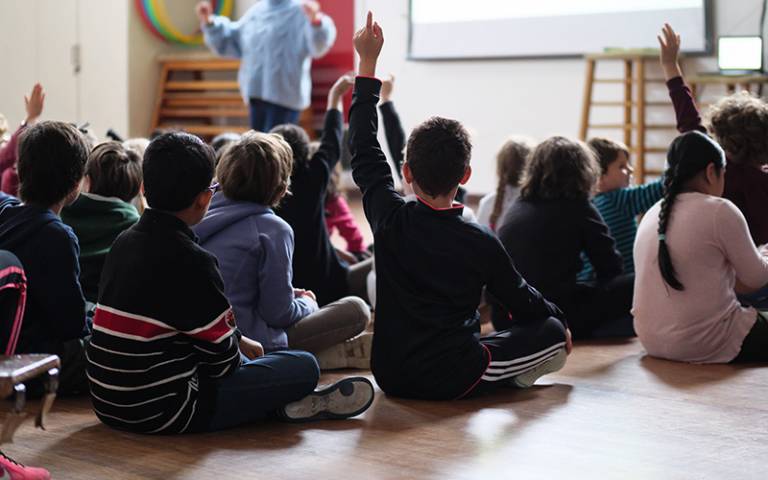‘Lower-attaining’ children missed being at school during Covid-19 closures, new research reveals
28 March 2022
Children missed being at school during closures implemented as a result of the Covid-19 pandemic, new research by IOE, UCL’s Faculty of Education and Society reveals.

Researchers found that wellbeing was diminished by school closures as it had hindered children’s opportunities to play, socialise and learn, which led to feelings of sadness, loneliness and boredom.
The analysis, led by Dr Denise Buchanan, used data from face-to-face interviews with 23 ‘lower-attaining’ children, who had been recruited into a 5-year study, due to their difficulties with numeracy and/or literacy when aged 7-8. Over half of the participants were considered to be from socially disadvantaged homes. This analysis captured a ‘before’ and ‘after’ picture of the children’s experiences, now aged 9-10, during schooling-as-normal and after the two periods of school closures.
Previous studies by the project team revealed that schooling had led these children to experience many negative feelings such as boredom, fears of failure, rejection and embarrassment, particularly in relation to testing. Yet post school-closures the same children described school more positively and apparently missed being part of a community that was bigger than themselves and their families, in a setting that offered socialisation, structure and purpose.
The study also found that during the online classes, the children missed the help that their peers and teachers would normally have given them during face-to-face classes. However, in contrast to other studies, the children did not find that being at home had given them more opportunities to be creative. This is perhaps because many of the children involved in the study came from families whose parents were unable to work from home due to their manual jobs and/or whose homes contained fewer non-digital games for them to engage with.
Dr Denise Buchanan said: “The question is how can we capitalise on the positive aspects that the absence-of-schooling-as-normal has highlighted, whilst minimising the negative aspects that we reported pre-pandemic?
"One way would be to use the distinctive lessons that the pandemic has afforded us, to radically overhaul the testing and inspection regimes. This could facilitate more flexibility in the curriculum for teachers and increase the opportunities for schools to focus on the humanitarian benefits that schools can uniquely offer. This in turn could promote flourishing among children, particularly those who are considered to be ‘lower-attaining’ and in so doing, enhance their sense of well-being rather than dimmish it.”
Links
- Read the paper: ‘Schools closed during the pandemic: revelations about the well-being of ‘lower-attaining’ primary-school children’
- View Dr Denise Buchanan’s research profile
- Department of Curriculum, Pedagogy and Assessment
Image: Phil Meech for IOE
 Close
Close

